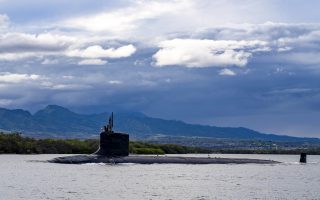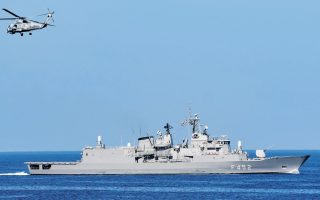Any European defense union has a Turkey-sized problem

The AUKUS security pact has clearly served as a rude awakening for many in the European Union leadership. While the content of the agreement took many by surprise, the geostrategic pivot of the United States to Asia, and, most shockingly for many, the cold shoulder given to the EU should not have been a surprise.
The EU has consistently failed to exhibit even a tiny spark of dynamism in its security planning despite facing several serious challenges over the last few years – be it Belarus and its flagrant and habitual disregard of international law, the civil war in Libya, or Turkey’s maneuvers in the Eastern Mediterranean.
The call by Ursula von der Leyen, president of the European Commission, for the creation of a European defense union is nothing new. It is only the latest in a long series of calls for a common European defense policy, if not a European army (despite the significant hurdles this project would face). However, her words also ring slightly hollow as the “lack of political will” she decried exists even among the very highest echelons of the European project.
Even the most cursory of glances reveals that the EU faces potential risks to its sovereignty and territorial integrity in the volatile regions of the northeast and the southeast. In both cases, the volatility stems from two countries which do not shy away from rocking the boat in what they consider to be their respective backyards, the Russian Federation and Turkey. However, the two situations are vastly different due to the presence and mission of NATO.
The vast majority of EU countries are also part of NATO, with 21 EU members also being part of the Alliance. Even Sweden, traditionally neutral, is moving closer to NATO membership under pressure from Russia. It is a convenient alliance for the EU as it provides security while getting the US to do most of the heavy lifting, a convenience however that EU member-states might regret in the future.
However, the key question is what stance the EU takes when Greece and Cyprus, two EU member-states, are being threatened by a country which is part of NATO, and the US military is not involved. Currently, its stance remains ambivalent at best. There are many reasons for this ambivalence of course, whether it is the issue of refugees (which will only be exacerbated by the situation in Afghanistan), historic and economic ties dating to the 19th century, or even political maneuvering and pandering.
The EU had the opportunity to take decisive action in 2020 to take up NATO’s mantra and affirm the belief that a threat to one is a threat to all. Only France, the true loser of the AUKUS agreement on many levels, took a decisive step in favor of defending the EU by deploying significant forces in the region to deter any hostile posturing. Unless the EU leadership as a whole is able to resolve its internal conflict over the stance it needs to maintain against a hostile Turkey in the Eastern Mediterranean, any words over a common European defense union will only remain hollow.




